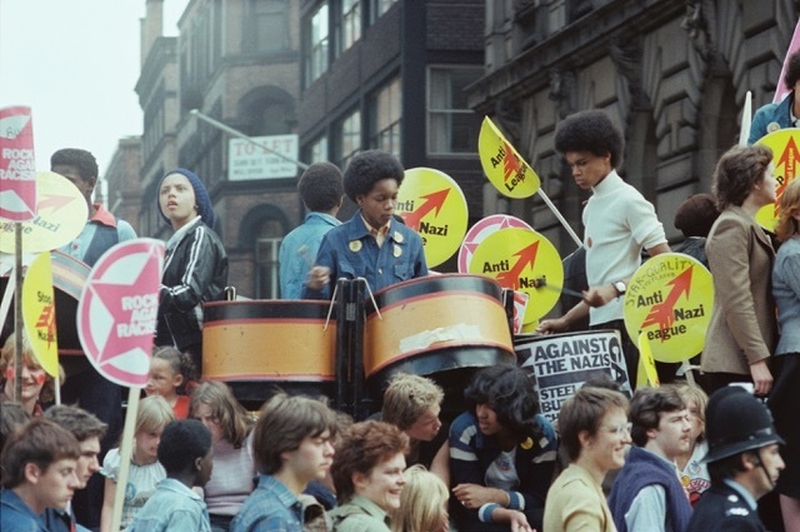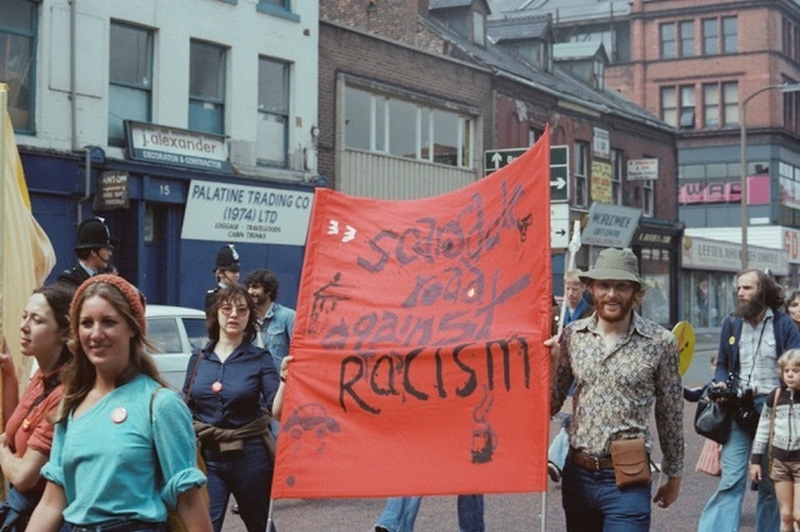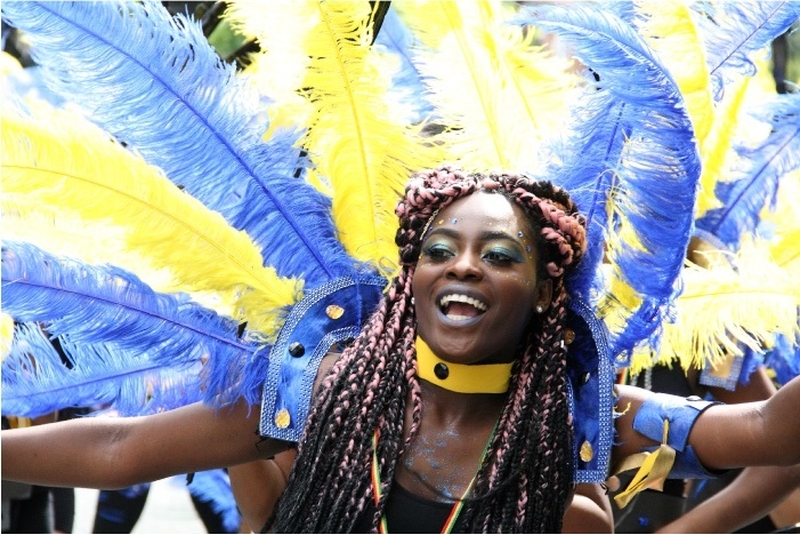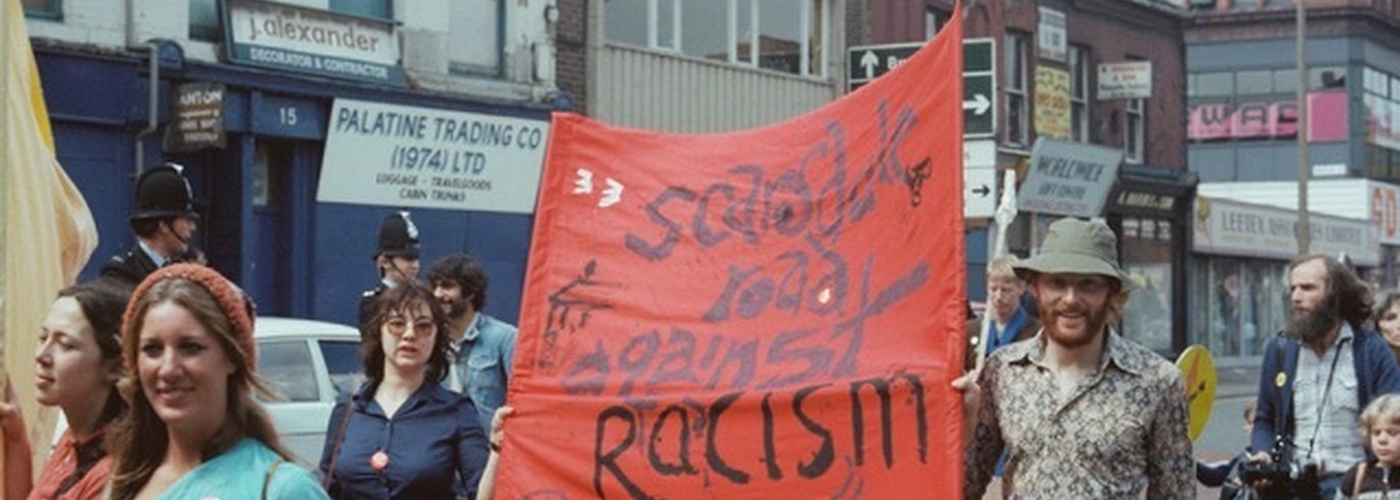40,000 people attended the 1978 rally and concert, featuring bands like Buzzcocks and Steel Pulse
While condemned by many for ignoring social distancing advice, there’s no doubt the turnout for Manchester’s #BlackLivesMatter protest earlier this month was impressive. The city centre rally was one of many to take place regionwide following the brutal police murder of George Floyd (commemorated in Akse's superb NQ mural), which sparked protests across the world.
Some are saying this is the biggest protest they’ve seen in Manchester #BlackLivesMatterUK pic.twitter.com/OQdo0Uq8N2
— Manchester Confidential (@mcrconfidential) June 6, 2020
Yet 2020 isn’t the only year to witness a major anti-racism rally in Manchester. Back in 1978, the city hosted an event that has gone down in music legend and delivered a powerful blow to a rising scourge of organised racism in the North West; the Rock Against Racism Northern Carnival, organised by Rock Against Racism and the Anti-Nazi League.

Even in the 1940s, when a Pan-African Congress held in Chorlton contributed to the independence of several African countries, it was said that Manchester was ‘the least prejudiced city in the UK' (though everything is relative: this was after all an era when Clayton-born Len Johnson gave up boxing due to the ‘colour bar’ he faced.) Manchester also played a key role in the anti-slavery movement, despite its industrial heritage, and later anti-apartheid movement; followed by the prominent campaign to protect Sri Lankan political activist Viraj Mendis, who claimed sanctuary in Hulme after fearing deportation would result in his death.
The Rock Against Racism Northern Carnival was a landmark demonstration of these inclusive, anti-racist principles comprising a 15,000-strong rally and huge open-air concert in Alexandra Park. Taking place on Saturday 15th July 1978, the event brought the seventies’ Rock Against Racism movement to the city and bands including Buzzcocks, Steel Pulse, China Street and Exodus. Turnout was an estimated 40,000 people; remarkable in a pre-internet era that relied on promotional activity like fliers and badges.

Cited by joint organiser, Bernie Wilcox of Rock Against Racism, as ‘the day that it became cool to be anti-racist,’ the protest galvanised the city against racist groups including the National Front. Four decades later, it was remembered in We Are Dynamite!; a 2018 commemorative project led by Manchester Digital Music Archive (MDMA), which can still be viewed online.
On carnivals
The Rock Against Racism Northern Carnival may not have been a traditional ‘carnival’ but the word sends an important message; one of joy and togetherness in the face of discrimination.
Before UK slavery was abolished in 1833, black slaves had been forbidden by law to take part in their master’s European Easter carnivals, or even to gather on the streets after nightfall. Following the Slavery Abolition Act, many took to the streets for their own carnival party with song, dance and costumes that reflected both their own cultures and satirised their ex-masters.

Carnival also played an important role during the turbulent 1950s, when many people from countries of the former British Empire came to the UK. By the end of the decade, racial tension had manifested itself in hundreds of young white ‘Teddy Boys’ rampaging through London’s Notting Hill. Trinidadian Claudia Jones’ response? To organise a parade which later became the world-famous Notting Hill Carnival. There are few more powerful messages than that.
Manchester, of course, has its own famed carnival. Founded in 1972 by a group of mostly St Kits & Nevis and Trinidadian Eastern Caribbean immigrants, who decided to organise an impromptu procession through the streets of their neighbourhood, it’s grown from less than one hundred people to attracting thousands each summer. Cancelled this year due to COVID-19, it’ll be back next year under new management with an event ‘the community can be proud of.’
UK anti-racism law: Key milestones
The Race Relations Act 1976
This replaced the unsuccessful bills of 1965 and 1968, and prohibited discrimination on the grounds of race, colour, nationality, ethnic and national origin. It also established the Commission for Racial Equality, echoed in 2010 by the unified Equality Act.
The Race Relations (Amendment) Act 2000
This created a public sector duty to promote equality, extending the Race Relations Act 1976. It followed great worldwide progress for racial equality in the nineties, including: the release of Nelson Mandela from prison after 27 years and his appointment as South African President (1995); the awarding of the Congressional Medal of Honour to Rosa Parks for her work against racism (1995); and the appointment of Kofi Annan as Secretary-General of the United Nations (1997).
Unified Equality Act 2010
This covers nine protected characteristics: age, disability, gender reassignment, marriage and civil partnership, pregnancy and maternity, race, religion or belief (including lack of belief), sex, and sexual orientation. The Act protects people from direct and indirect discrimination resulting from any of these characteristics.













